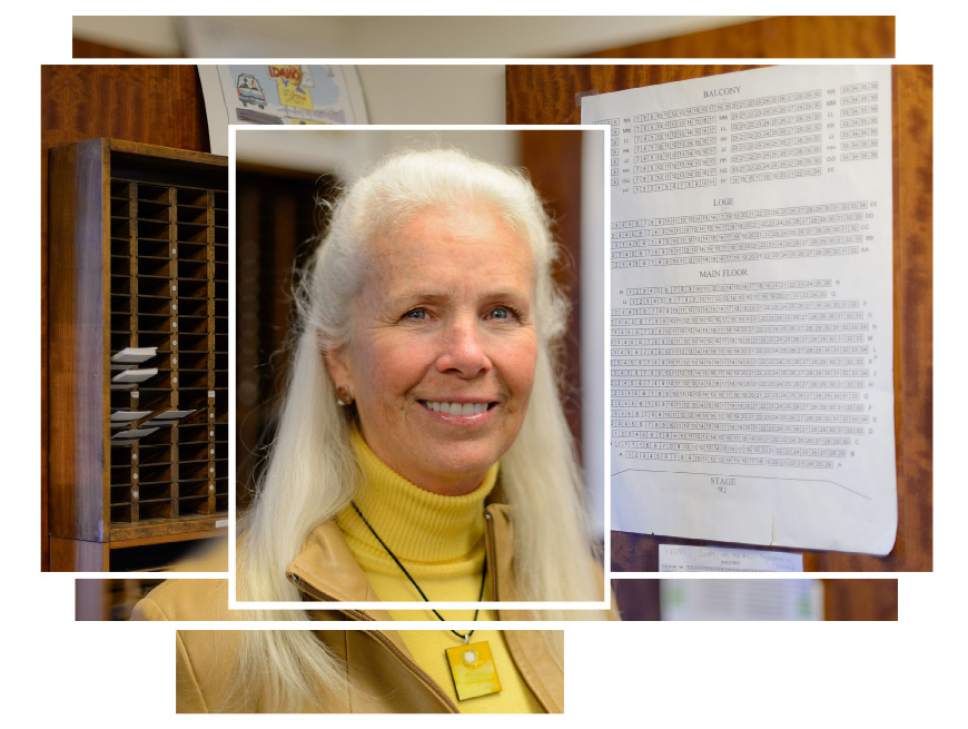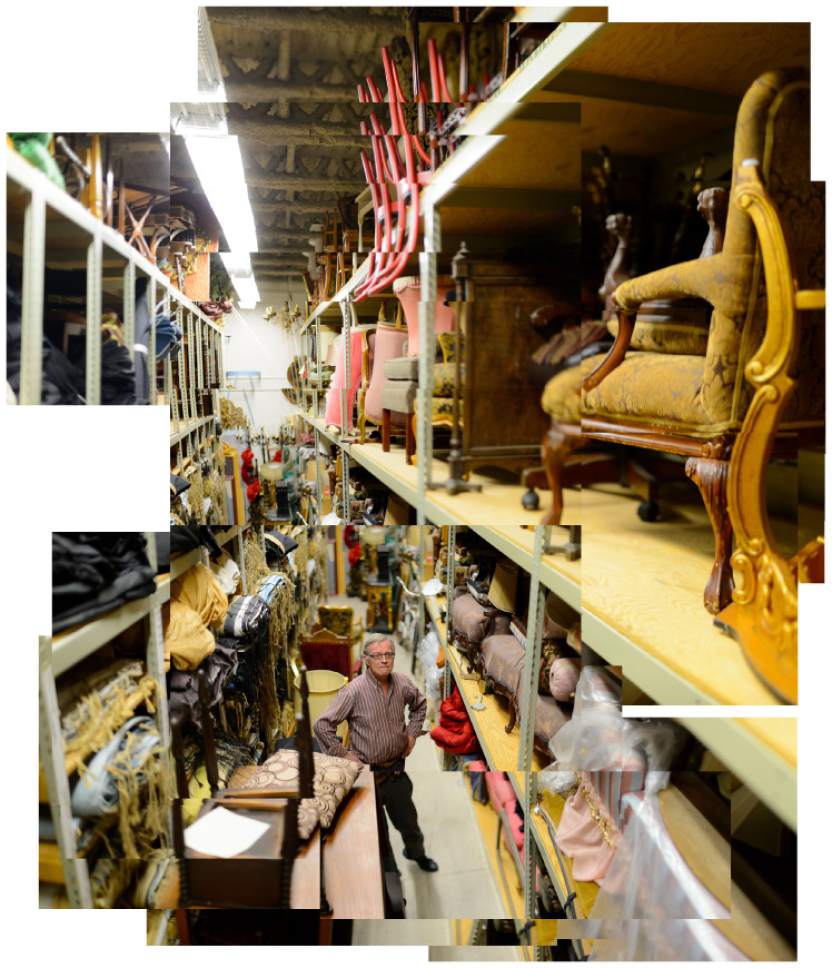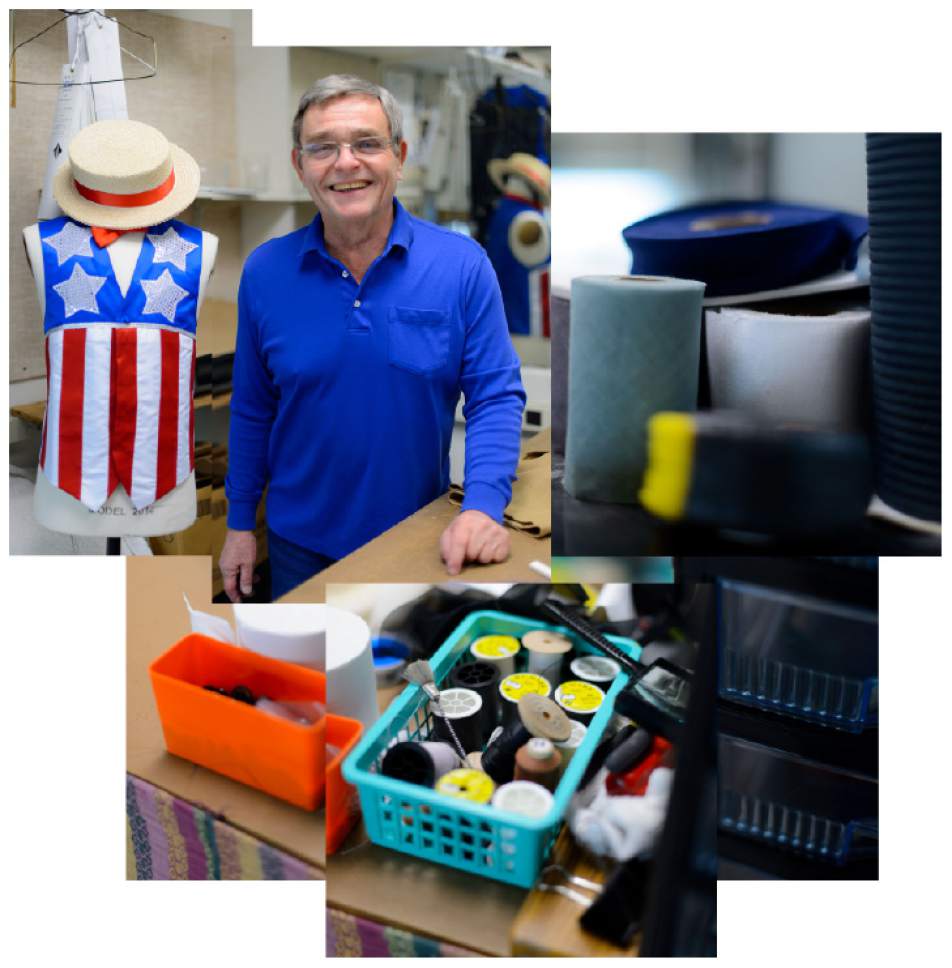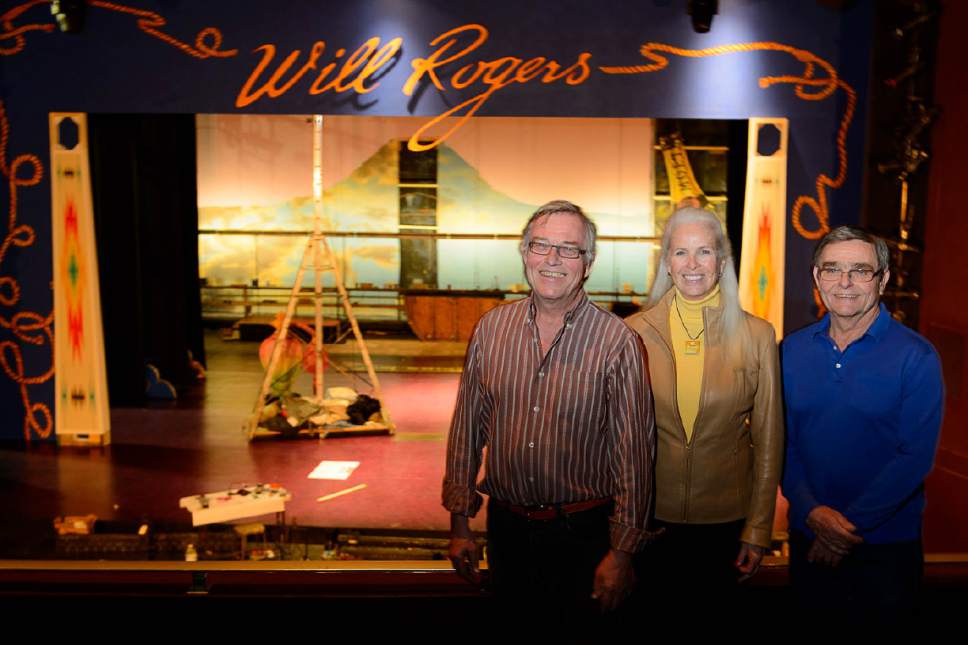This is an archived article that was published on sltrib.com in 2017, and information in the article may be outdated. It is provided only for personal research purposes and may not be reprinted.
In the costume shop working on his first Pioneer Theatre Company show, George Pesek was assigned to tailor 10 pair of jeans for the male actors in "Oklahoma." Jeans were pants, so that made sense to him. More complicated was the very American assignment to create two pair of chaps.
As a refugee, Pesek was grateful to have found the job just two weeks after landing in Salt Lake City in 1980. He was happy to use the tailoring skills he had learned as a teenager some 15 years earlier at trade school in his native Brno, Czech Republic.
But the assignment to work on chaps was puzzling. "What will cover their buttocks?" he wanted to ask but didn't have enough English words to easily translate.
"I didn't grow up watching John Wayne movies," Pesek says 37 years later from his neat corner of the costume shop anchored with a Juki sewing machine. "Didn't know about cowboys."
Pesek retired this month, one of three longtime staffers leaving the company this year. Departing in July will be Colleen Lindstrom, patron services manager, while George Maxwell, resident set designer, will retire in October.
Kicking off the current string of departures was Carol Wells-Day, who retired last year after running the theater company's costume shop for 25 years.
Collectively, this crop of retirements mark a kind of institutional changing of the backstage guard. "It will be a huge adjustment," says Karen Azenberg, PTC's artistic director, referring to such long theatrical roots as a Utah phenomenon. She can't think of another theater company in the country that has had artisans, designers and management staff — across a variety of positions — who have worked together for so long.
"You will never see this kind of longevity again, here or anywhere," says Chris Lino, PTC's managing director. The retiring employees underscore the security they found at the university-based professional company in the not-so-secure business of theater. "I love being associated with the theater company," Lindstrom says. "I'm so proud of how management treats everybody. And I'm so proud of the product we create."
Bosses laud the employees for their contributions across department lines.
Azenberg describes Pesek, 66, as a problem-solver, whose passion and tailoring skills have particularly benefited male actors. "You watch a man walk onstage in a suit that has been tailored to him, and he looks like a different person," Azenberg says. "Who has that skill today? It's extraordinary."
Lindstrom, 66, is noted for her pure love of theater and her sharp-eyed copy-editing skills, as well as her relationships with subscribers, most of whom she knows by name and preferred seats. "Everybody in this town has worked for Colleen," Lino says. "They've all passed through this box office."
As for Maxwell, 65, he's the company's resident curmudgeon, lauded for his great taste, dry wit and resourcefulness. As he was promoted from prop master to resident set designer, over the years he developed a singular institutional knowledge of the company's scenic archives.
Maxwell would rather recycle a set piece for "King Charles III" into a backdrop for "Will Rogers Follies" than build something from scratch, he said last month on a walk through the shop. He's agreed to take on a few assignments as a guest set designer, beginning with December's production of "Newsies."
Artists around town also know Maxwell's eye from his curation of the company's Loge Gallery, which he launched in the 1970s. Over the years he has continued to select and hang theater art exhibits in conjunction with each show.
All three staffers refer to their Pioneer colleagues as family, something Lindstrom made literal in 1998 when she married Lino. She met him in 1991 when she was assigned to give the new managing director a ride from the airport.
When the pair started dating, they didn't keep it a secret. Lindstrom was assigned to report to the dean of the University of Utah's fine-arts department rather than Lino. (In contrast, in more of a dysfunctional family style, Maxwell loudly voiced his suspicions that the new boss was planning to fire the whole staff for two years after Lino arrived.)
Lindstrom invited Lino to join the theater company's softball team and introduced him to camping and river trips. He introduced her to New York theatergoing and riding the subway.
She was a recently separated mother of two when she started working part time at the company in 1973. In 1979, she was promoted to box-office supervisor. She's overseen major changes over the years, as racks of tickets made way for an automated system.
Maxwell grew up in a blue-collar railroad family, attending schools in Utah, Wyoming and Nebraska as his family moved with his father's Union Pacific job.
After studying theater at Dixie and Weber State, Maxwell's father got him a good job at the railroad. His family at first didn't understand why when he quit for a lower-paying job at Pioneer — until they saw a set he designed for a 1981 production of "Arsenic and Old Lace" that was inspired by a former family home.
But Pesek's backstory remains the most dramatic.
It took him and his older sister five years of trying before they were able to escape communist rule in their native country. "Finally we bribed the right people," he says of obtaining the paperwork that helped them make their way to a Swiss refugee camp.
Months later, sponsors helped him find his way to Boston and then, on April Fool's Day, 1979, he arrived by bus in Salt Lake City.
He was offered a job as a laborer at Kennecott for $13 an hour, but instead took a temporary job at the theater costume shop using his tailoring skills for $3.75 an hour. "Slow learner," he says now with a laugh.
In the costume shop, he learned English. Summers off, he painted and repaired houses, eventually buying and selling several properties. In 1985, he became an American citizen.
Over the years, the costume shop began reusing pieces from the wardrobe archives for big shows, rather than making every piece from scratch. Sometimes he found tailoring labels stitched inside a waistband four or five deep, reminding him of his work on shows decades earlier.
Speaking of a full-circle exit: For his last show in April, Pesek tailored costume pieces for the company's spectacularly colorful costumes for "Will Rogers Follies," an assignment that included adorning four pairs of chaps.
In the spotlight at Pioneer Theatre Company
Three longtime employees are retiring this year from the University of Utah-based professional theater company.
Colleen Lindstrom • Began working part time in PTC's box office in 1973 for $1.65 an hour; retiring as the company's patron services manager after 44 years.
George Maxwell • Began working at PTC as props manager in 1974 for $2.50 an hour; retiring as resident set designer after 43 years.
George Pesek • Began working as a tailor in PTC's costume shop in 1980 for $3.75 an hour; retiring after 37 years.
Season tickets • The Pioneer Theatre Company season opens Sept. 15 with "The Curious Incident of the Dog in the Night-Time," a regional premiere of the 2015 Best Play Tony award. For season tickets or show information, visit pioneertheatre.org or call 801-581-6961.









